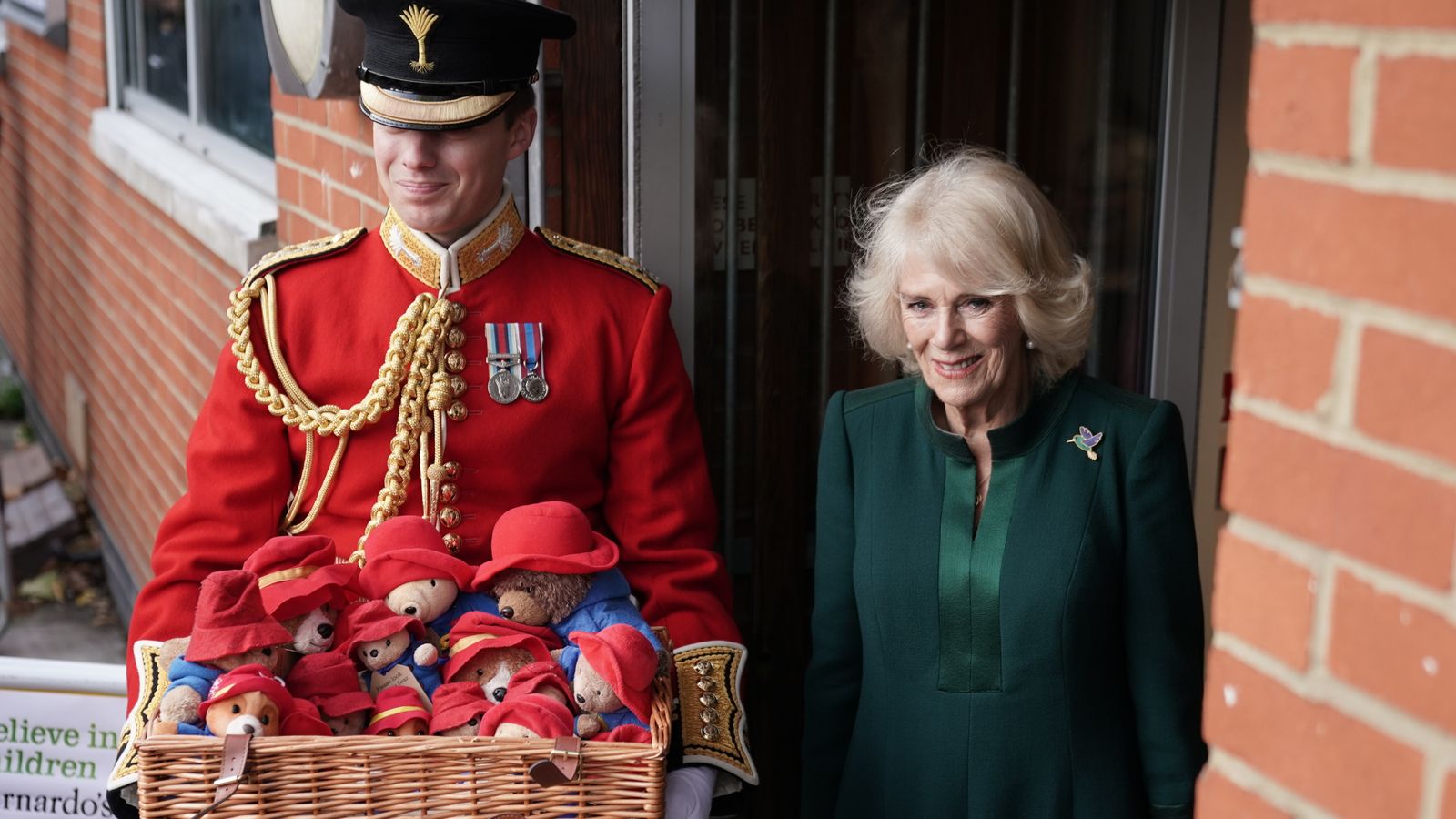The boss of Royal Mail has said he is happy to meet striking union leaders but warned them to “think carefully about their members’ jobs and saving Christmas”.
Speaking to Sky News’ Kay Burley on Tuesday, head of the Communication Workers Union Dave Ward had called on Royal Mail CEO Simon Thompson to debate him on air.
“We are always available to talk,” Mr Thompson told Sky business presenter Ian King, adding: “They’ve still got a chance to save Christmas and their members jobs.”
Union boss expecting ‘positive’ talks meeting – strikes latest
The union is engaged in two days of 24-hour strikes, designed to overlap with the busy online shopping days of Black Friday and Cyber Monday.
It’s the latest in a run of industrial action which has taken place since the summer in a dispute over pay and conditions as the company seeks to increase delivery days.
Customers were advised to post early for Christmas as further strike action will impact postal deliveries.
Royal Mail strikes: How they will affect your letters and parcels and what services are open
Black Friday threat as Royal Mail staff begin ‘disastrous’ 48-hour strike
Royal Mail workers to stage six more strikes – including Christmas Eve
An apology was given to customers by Mr Thompson for that disruption.
“The changes we want are the changes customers want,” he said, highlighting plans for a seven-day parcel delivery service and late night orders with next day delivery.
Mr Thompson said a concession had been offered over conditions as postal workers were offered voluntary working on Sunday.
The more changes that are made, the more pay can be increased, Mr Thompson added.
A pay offer which would cost the company £400m has already been offered to the union, he said, adding: “We’ve now made our final offer”.
Read more:
Why union’s pay fight risks backfiring on workers
The company is losing £1m a day, which rises to £100m a day during strike action, Mr Thompson added.
When asked why Royal Mail, which profited by £416m in the year up to March and £344m last year, could not afford extra payments to workers, Mr Thompson said money was being spent on improvements sought by customers.
Declining parcel volumes were also given as a reason that workers did not deserve a pay rise. Volumes have continually decreased from 20 billion letters a day in 2004 to 2005 to eight billion now, Mr Thompson said.








